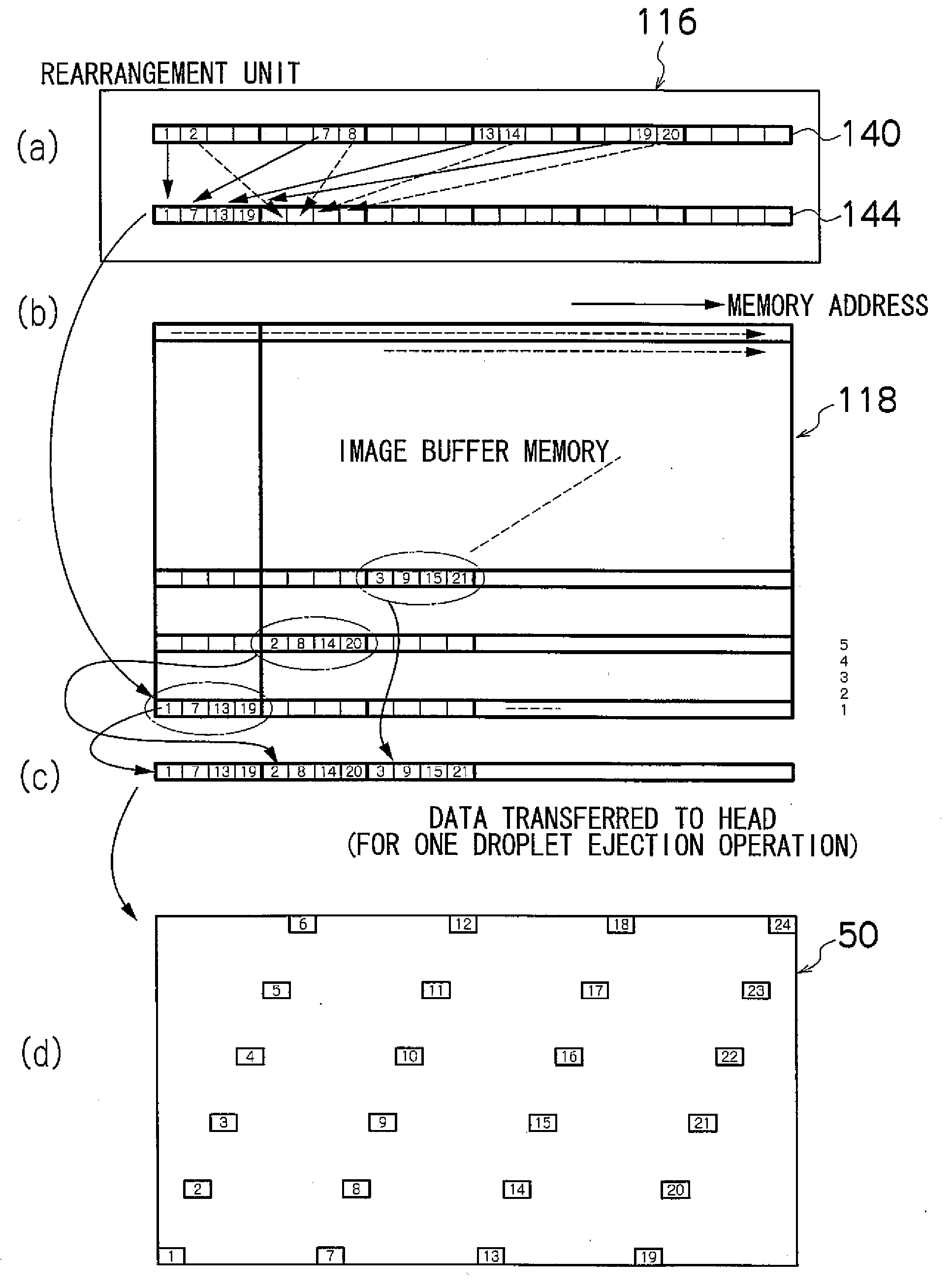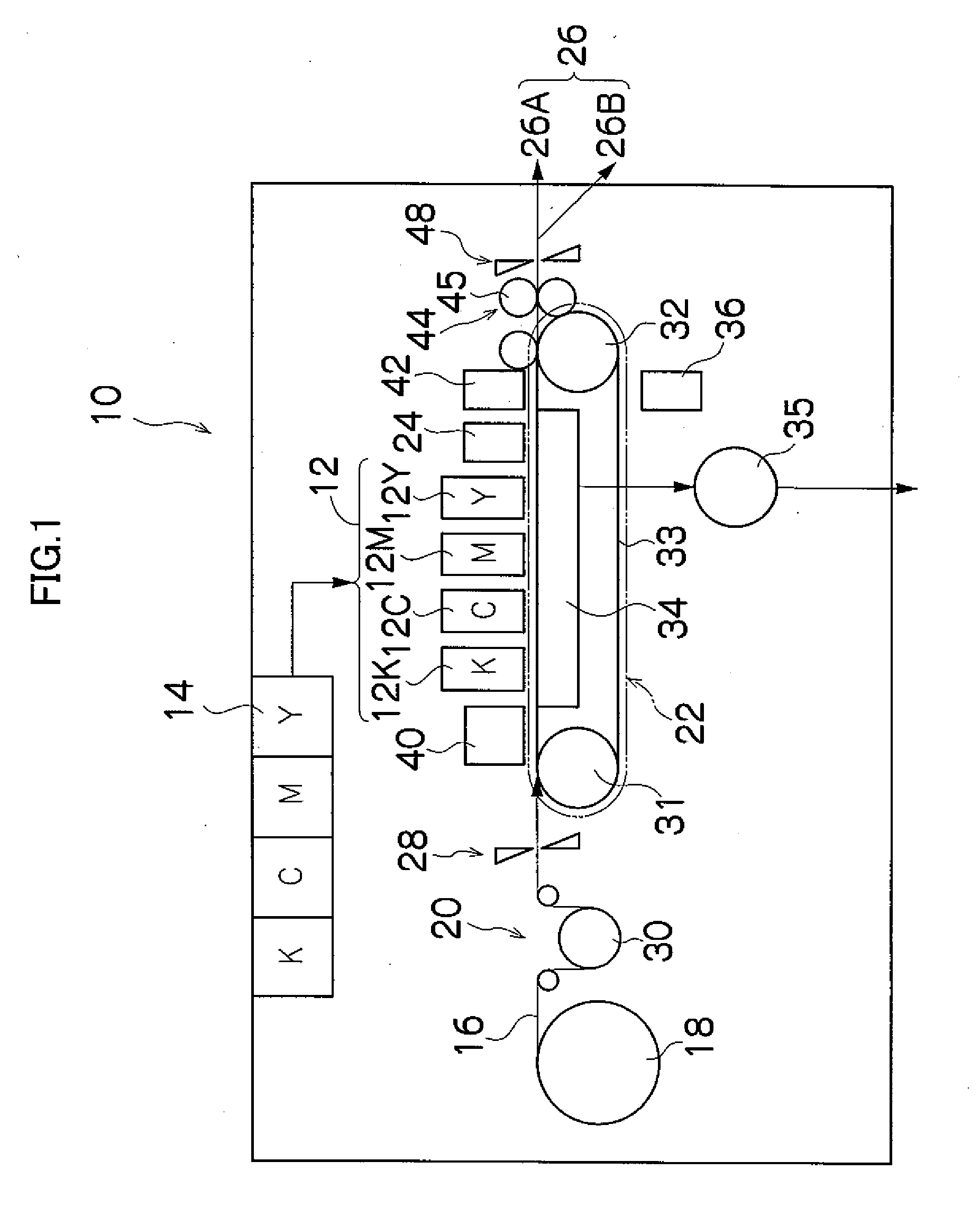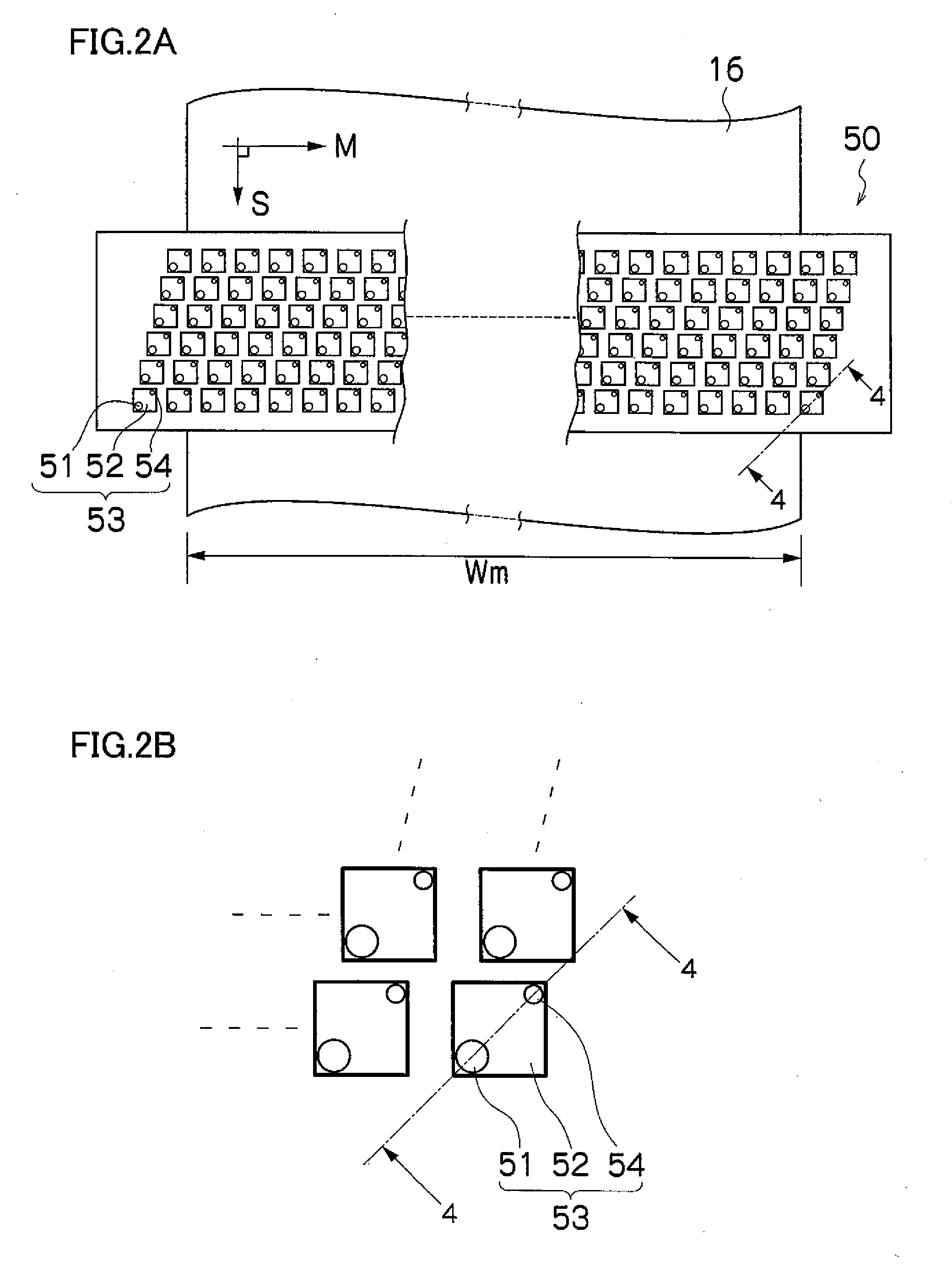Image forming apparatus and method of transferring print data
- Summary
- Abstract
- Description
- Claims
- Application Information
AI Technical Summary
Benefits of technology
Problems solved by technology
Method used
Image
Examples
further embodiment
[0134]The compositions shown in FIG. 6 to FIG. 12 comprise an image page memory 114 provided inside the printer. When handling images of high resolution, this image page memory 114 becomes extremely large in volume. For example, in the case of a system which reproduces images of 1200×1200 dpi resolution in six colors and four tones for each color, it is expected that a memory of 200 MB capacity will be required.
[0135]On the other hand, it is also possible to adopt a composition in which an image page memory is not provided inside the printer, as shown in FIG. 14. More specifically, in the composition shown in FIG. 14, the image data (print data) is transferred to the printer, one line at a time, from a page memory 180 inside the host computer 101. In FIG. 14, elements which are the same as or similar to those of the composition shown in FIG. 12 are labeled with the same reference numerals and description thereof is omitted here.
[0136]In the case of the composition shown in FIG. 14, ...
PUM
 Login to View More
Login to View More Abstract
Description
Claims
Application Information
 Login to View More
Login to View More - R&D
- Intellectual Property
- Life Sciences
- Materials
- Tech Scout
- Unparalleled Data Quality
- Higher Quality Content
- 60% Fewer Hallucinations
Browse by: Latest US Patents, China's latest patents, Technical Efficacy Thesaurus, Application Domain, Technology Topic, Popular Technical Reports.
© 2025 PatSnap. All rights reserved.Legal|Privacy policy|Modern Slavery Act Transparency Statement|Sitemap|About US| Contact US: help@patsnap.com



